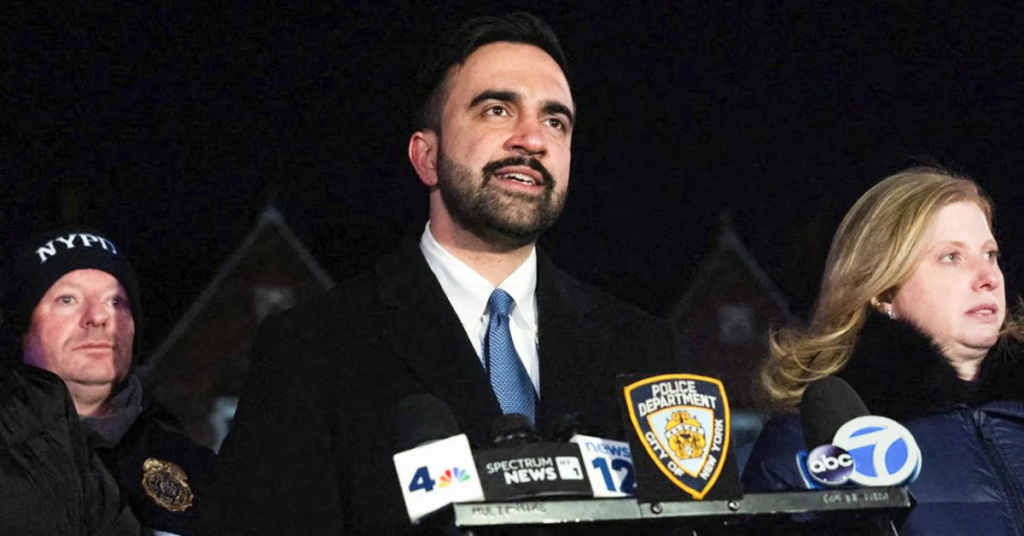Family ideally should be the most trusted group, but reality differs in households worldwide. A TikTok user, driven by this reality, shared a video outlining her approach to raising her daughter. She opts not to leave her child alone with male relatives and prohibits them from attending sleepovers. This stance has sparked a lively debate among parents. While some support her decisions, others find them somewhat controversial. She firmly asserts that no male relatives will be responsible for caring for her daughter.

Aubrey, a mother of two, has shared impactful insights on her approach to raising her children in today’s dynamic world. With a commitment to ensuring her kids grow up in a safe environment, she actively engages with her audience on TikTok under the handle @theorganicmami, where her followers are steadily increasing.
In a recent get-ready-with-me video, Audrey openly discussed her parenting methods. She began by emphasizing her decision not to allow her daughter to have sleepovers, a sentiment many would likely agree with. However, Audrey takes it a step further, expressing her reluctance to let her daughter stay overnight even with family members, including grandparents.
Audrey firmly states that her daughter will not be left alone with male relatives, regardless of their relationship. She unequivocally asserts, “No sleepovers. Not even with family members. And she will never be left alone with a male. I don’t care if you’re the grandparent, the uncle, or the cousin.”
@theorganicmami Controversial ways I’m raising my daughter ✨ call me crazy IDC 😂 #controversialmom #controversialwaysimgoingtoraisemykids #raisingmydaughter #controversialmomtopics #controversialopinion #raisingstrongwomen #crunchymom #chattygrwm #sahmgrwmroutine #youngfirsttimemom ♬ Storytelling – Adriel
The video continued as Audrey applied makeup to her face, emphasizing that she would apply the same rules to both of her children. This means her son will be subject to the same restrictions as her daughter.
In Audrey’s perspective, neither her daughter nor her son will be allowed to go out late, deeming it unsafe for both genders. Audrey clarified, “For instance, me letting my son go out late but not my daughter because it’s too dangerous for a woman. I’m just going to treat them both the same.”
Regarding displays of affection, Audrey asserted that her daughter is not obligated to receive hugs or kisses if she doesn’t want to, whether from friends or relatives. She strongly emphasized transparency, stating that secrets will not be kept from parents. She also warned against attempting to offer incentives with hidden intentions, stating, “That’s the quickest way to never see us again.”
Audrey insisted that her daughter has the freedom to express emotions as she chooses and will not be compelled to attend public schooling. Audrey expressed, “She doesn’t have to respect you if you don’t also respect her. As a child, she still will have opinions and emotions, and she is allowed to feel a certain way.”

The comments section reflected a variety of opinions. Some parents supported Audrey’s approach, with one person stating, “[People are] getting mad about the no sleepovers rule, but it’s actually good speaking from my childhood experiences.” Another shared, “My mom did the no sleepovers thing [with] me when I was younger, and I was upset, but later found out once I was invited, three girls got [sexually assaulted] by the stepdad.”
Conversely, some individuals found Audrey’s decisions perplexing. Many conveyed that their fondest memories were from sleepovers and expressed concern that her children would miss out on enjoyable experiences. A teenager shared her frustration at not being allowed to attend sleepovers, writing, “I’m not allowed to have sleepovers, and I hate my mom for it [so much] I missed out on a ton of stuff.”
Another commenter mentioned, “If you know the parents and the kid, I don’t see the harm in sleepovers; they’re honestly some of my best memories.” Lastly, someone questioned Audrey about her lack of trust in her own male relatives, asking, “Why do you not trust your brother or dad? Do you leave her alone with her dad??”



